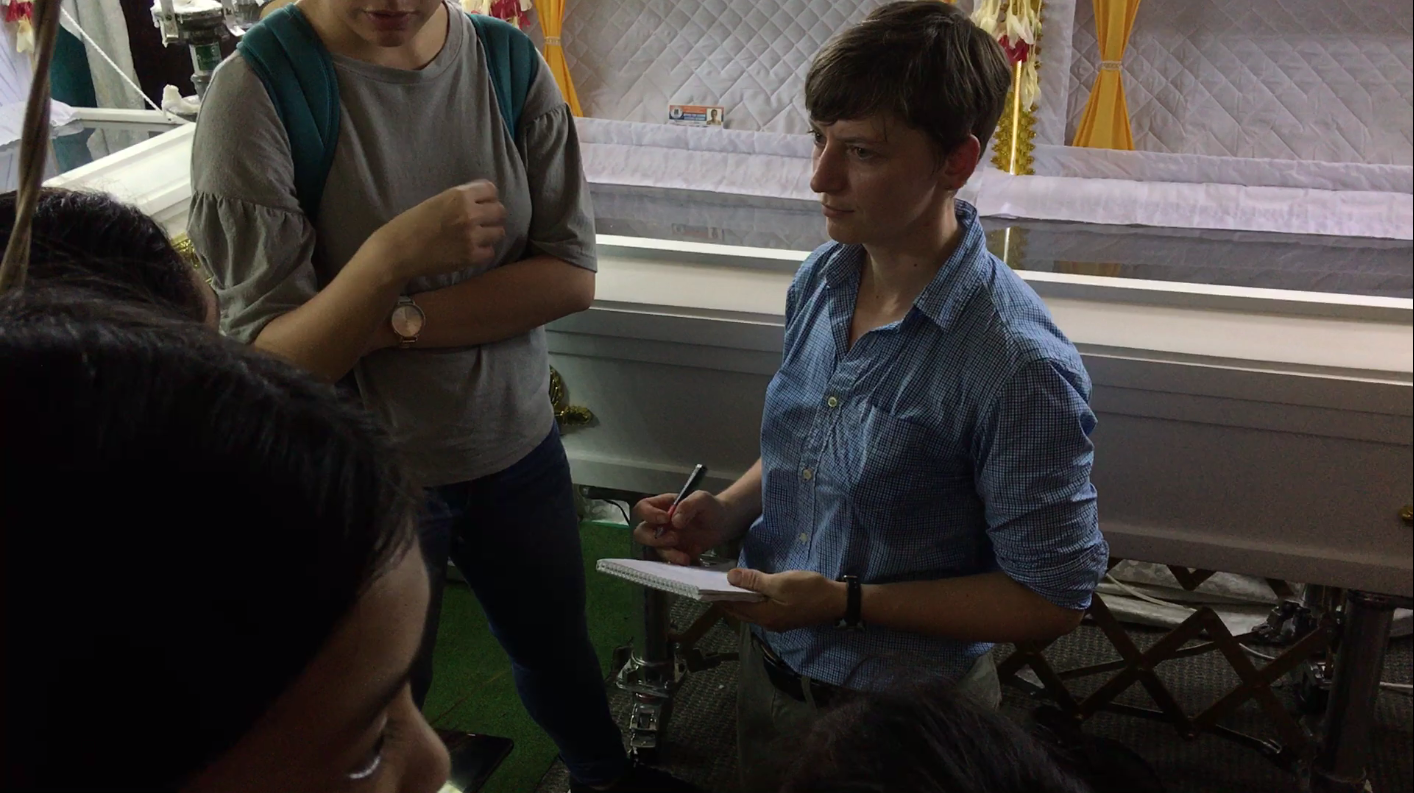
A news reporter born and raised in Alaska took home one of journalism’s top honors this week.
Clare Baldwin and two of her colleagues with the Reuters news agency won the Pulitzer Prize for international reporting for their series on a brutal, ongoing drug war in the Philippines.
Before spending a year and a half reporting on death squads, Baldwin said she had seen maybe one dead body, and that was in a casket at a funeral. But a big part of Baldwin’s mission, along with her Reuters colleagues Andrew R.C. Marshall and Manuel Mogato, was to show the pattern behind why more and more Filipinos were showing up dead on city streets.
Baldwin, 34 and a graduate of Colony High School in Palmer, says it was difficult at times but important.
“Yeah, there’s a lot of death and blood and guts, and you have to kind of keep in mind why you’re there. And you’re there to tell a story about what’s happening,” Baldwin said.
What was happening — and what Baldwin said is still happening — is a drug war under Philippines President Rodrigo Duterte that has been marked by thousands of extrajudicial killings. Duterte has said the killings by his government’s anti-drug squads are justified, but they have been condemned by international human rights groups.
The hard-nosed reporting by Baldwin, her colleagues and others added a greater depth to news of the ongoing violence. It has also given their international audience a better sense of the actual number of deaths and the impacts to the families left behind.
“And I also hope this brings a lot more attention back to the Philippines, because the drug war is still happening, people are still being killed, these families are still asking for justice, and there are a lot of really wonderful local reporters that are still covering this,” Baldwin said.
Baldwin was once a local reporter, too. That was before college at Stanford, before she became a special correspondent in Southeast Asia for Reuters and before moving to Hong Kong, where she lives on a boat.
Baldwin was still in high school when she reported for the Mat-Su Valley Frontiersman. She also worked for the Fairbanks Daily News-Miner and the Peninsula Clarion. And, among other outdoor activities, Baldwin did some mountaineering with her dad.
Baldwin said growing up in Alaska shaped her as a person and helped her in many ways, including the ability to improvise.
“Or the desire to improvise,” Baldwin said with a laugh. “Being comfortable in kind of uncomfortable places. Because the more you can just deal with yourself and be comfortable in rough conditions, the better. Like you’ll do a better job.”
Baldwin’s parents, Ralph Baldwin and Susan Gunther, still live in Wasilla. They were proud and pleasantly surprised to get what they described as an typically “understated” announcement from their daughter this week about the Pulitzer.
Considering the subject matter of the reporting, they both say they are concerned sometimes about her safety on reporting trips abroad, poking around in such violent circumstances. But both parents said Baldwin has proven she’s capable of taking care of herself with good judgement and a good sense of risk management.
Susan said they strived to teach their children to be independent critical thinkers.
“Sometimes when you raise your kids to be independent, the (downside) is they do take off and end up in different parts of the world,” Susan said. “But we’re really proud of them, and when we can see them, we’re thrilled.”
Baldwin does make it back to Alaska to visit from time to time. But she is currently working on another reporting project, this time in Bangladesh, telling the stories of hundreds of thousands of refugees fleeing persecution and, again, reports of government sanctioned killing.
Casey Grove is host of Alaska News Nightly, a general assignment reporter and an editor at Alaska Public Media. Reach him atcgrove@alaskapublic.org. Read more about Caseyhere.





